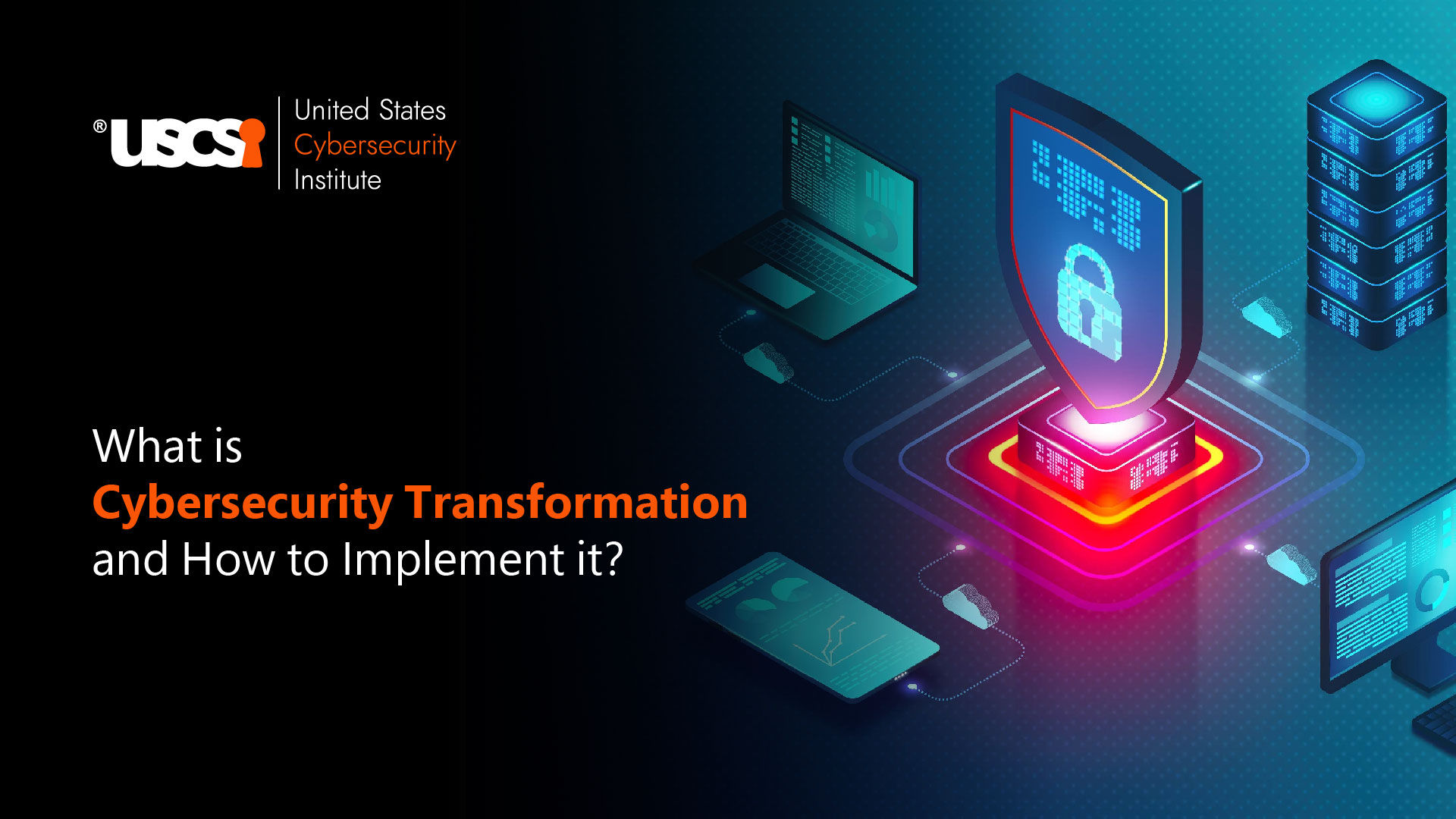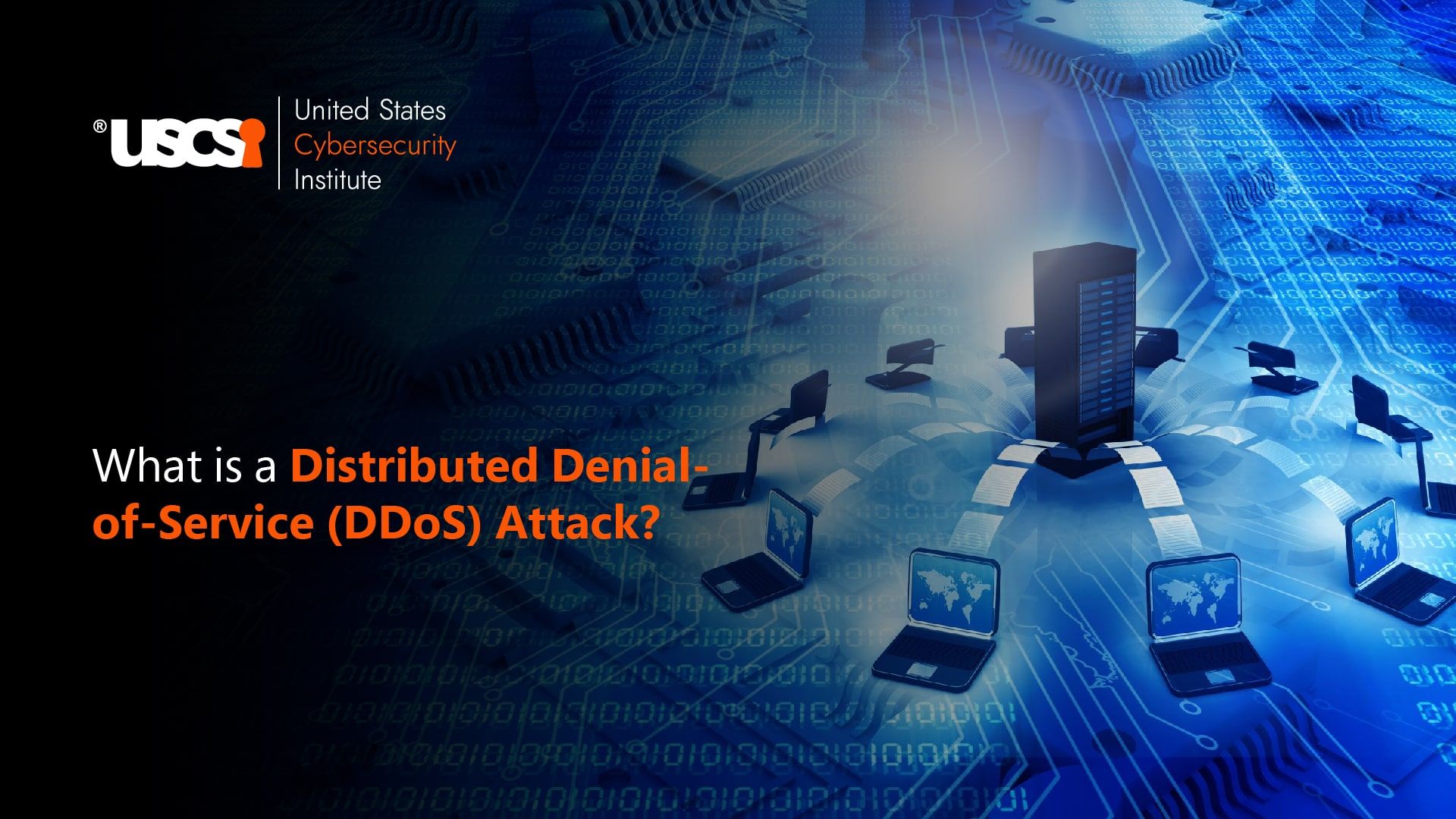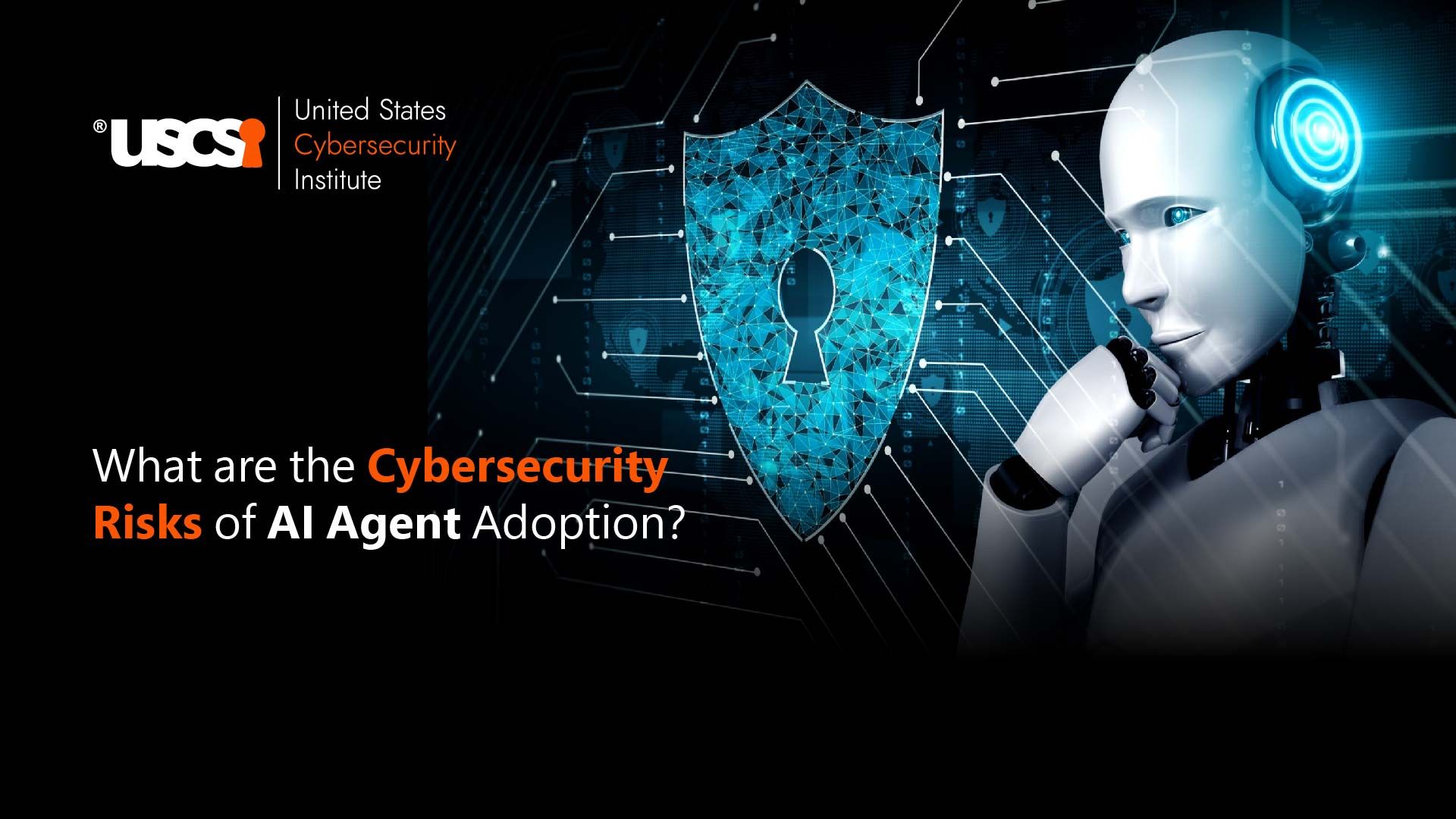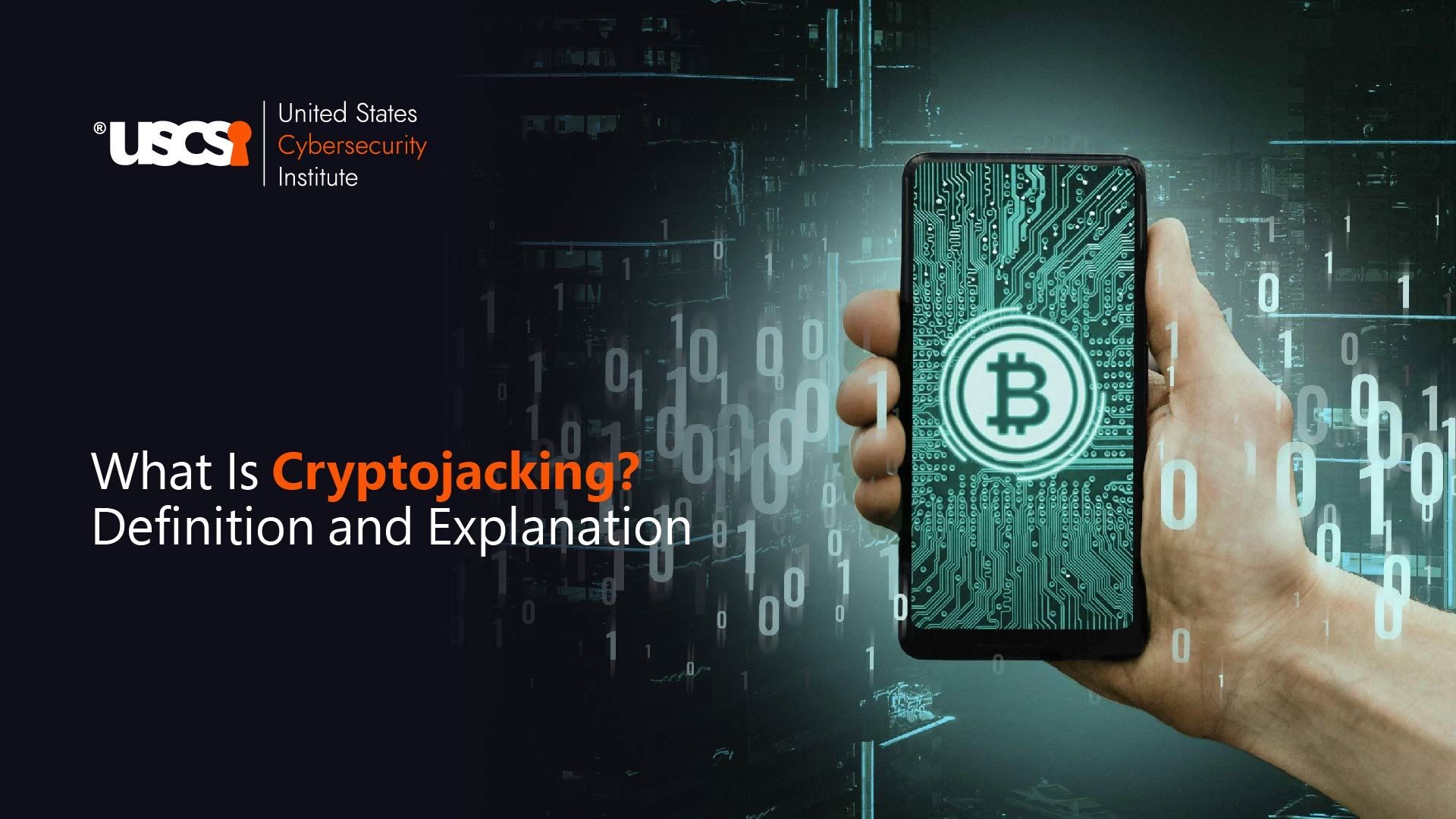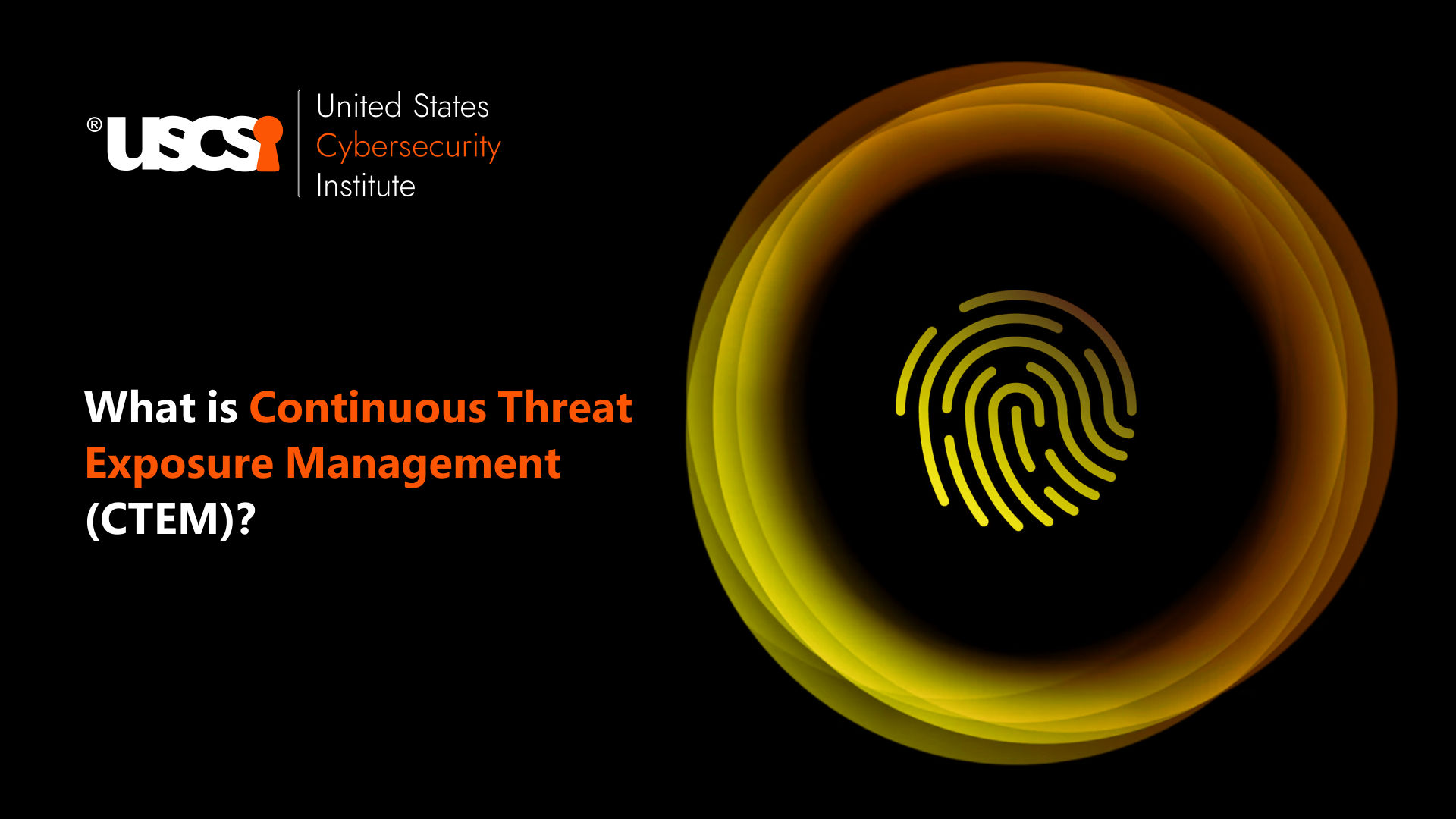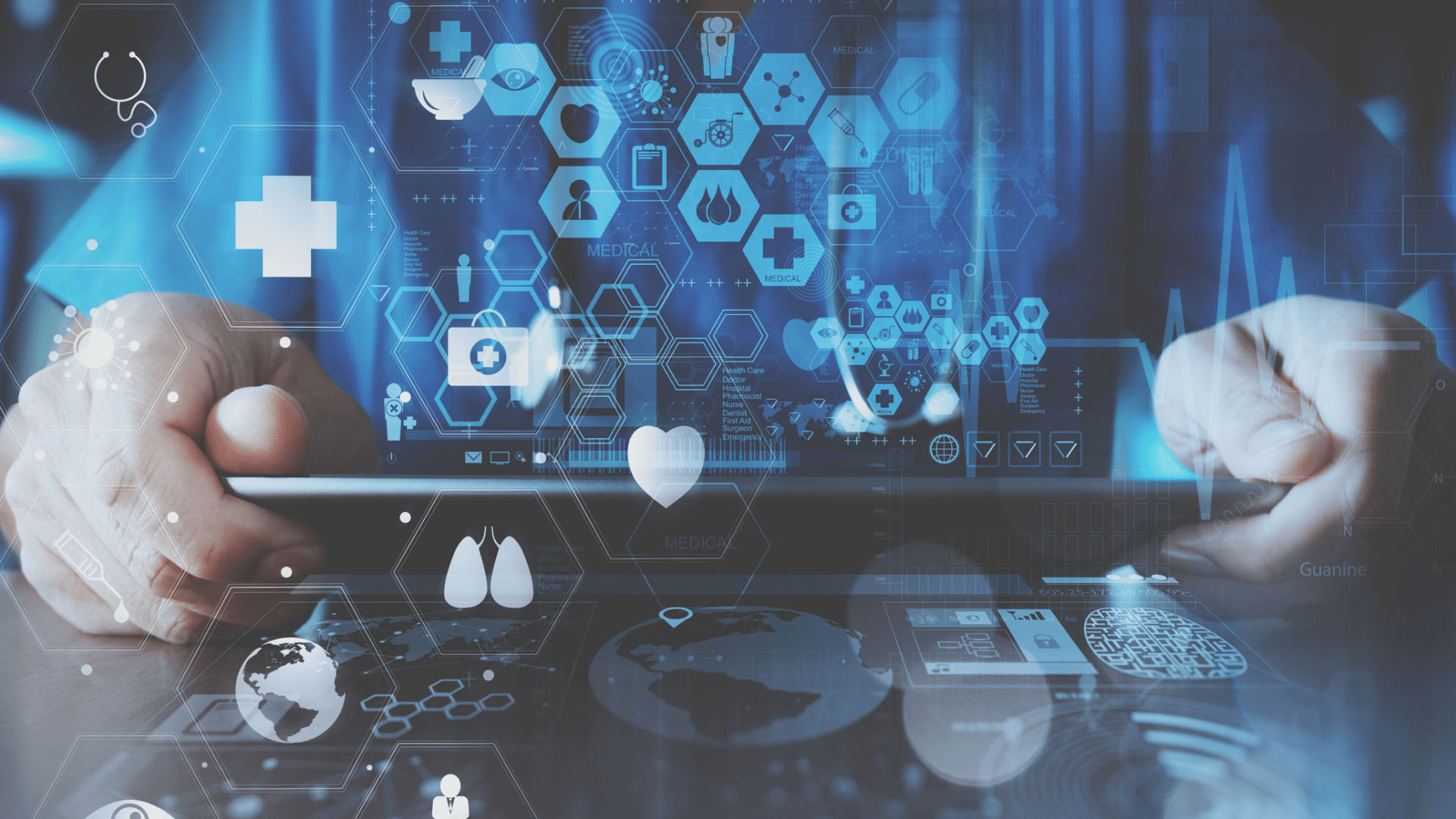

Healthcare Cybersecurity - What Is It And Why Is It Critical In 2024?
Medical devices are an easy target since they do not come with the same level of security as devices such as computers. Building a robust cybersecurity landscape is in whopping demand for the healthcare industry. Making cyberspace secure and effectively guarded, is an essential aspect of the healthcare industry. Patients’ data, financial reports, past health history, and other critical details are the most vulnerable areas of stealth. Digital technology is essential to ensure efficient and hassle-free healthcare infrastructure operations; inclusive of HVAC, and communications systems.
Ever thought of Cybersecurity in the Healthcare Industry? The wide range of digital technology comes with a vast array of hardware, software, and cloud services. The global healthcare cybersecurity market size was estimated at USD 17.3 billion until 2023. This is projected to grow at a CAGR of 18.5% from 2024 through 2030 (grandviewresearch.com). Most hospitals cannot stay secure because they have numerous devices and the networks are potential access points for hackers. Let us understand the entire healthcare cybersecurity system in detail.
Why is Cybersecurity Important in Healthcare?
The cybersecurity industry is overburdened with the heftiest task of securing data and virtual spaces of worldwide industries. In 2024, the cybersecurity threat rates are going higher with this year expected to close at a 13% higher stature than the previous year (cobalt.io). The Sophos Threat Report 2024 covers malware distribution mechanisms now in use, which range from phishing to malvertising and SEO poisoning. This is enough reason to state the importance of cybersecurity in healthcare as well.
Understanding Healthcare Cybersecurity:
Healthcare cybersecurity is the practice of protecting the sensitive data of healthcare organizations from unauthorized infiltration, access, theft, damage, or disruption. It includes using administrative, physical, and technical measures to safeguard the integrity, confidentiality, and data availability.
What makes Healthcare an attractive option for cyberattacks?
If you are someone thinking of a career in cybersecurity and planning for a healthcare domain; this is the right time. Grab the best cybersecurity certification programs to enable you with the best skills and tools to counter cyberattacks, by becoming the most in-demand cybersecurity talent. However, today, healthcare data security suffers tremendously due to the following factors:
- Healthcare organizations have an extensive and often unprotected attack surface
- Personal health information data has a high value on the black market
- Healthcare breaches cause material damage
7 Biggest Cyberthreats in Healthcare:
- Phishing
Hospitals and clinics are fast-paced environments with constant urgency looming over their workers. Email and spear phishing are the most common as hackers use advanced social engineering techniques to convince their victims to send them sensitive information.
- Ransomware
This operates around a virus, specifically a trojan virus, that infects computers to encrypt all the data on the machine; and demands ransom in exchange for it from the victim.
- Data Breaches
As against other industries, the healthcare industry suffers a large amount of data breaches, experiencing 725 data breaches being reported to OCR across the list in the previous year, which is expected to soar ahead (hipaajournal.com). This swells the cost of data breaches occurring in the healthcare sector worldwide.
- DDoS Attacks
This involves millions of pings to a server, usually using emails, making it crash and rendering it useless until the attack continues.
- Internet of Things
While IoT has revolutionized the healthcare industry, it has opened wide gateways to heinous cybersecurity threats. Healthcare institutions must implement strong authentication protocols, deploy network segmentation, and update devices with the latest security patches.
- Supply chain risks
Negligence of the supply or third-party vendors leads to cyberattacks in the healthcare industry. An in-depth understanding of the cloud services and ensuring their third-party providers implement mature security programs is the key to resolving this issue.
- Insider threats
Insufficient employee awareness can lead to insider threats. Establishing a strict hierarchy for data access and anonymization of patient information is a must to safeguard against insider threats.
3 Key Elements of Healthcare Cybersecurity:
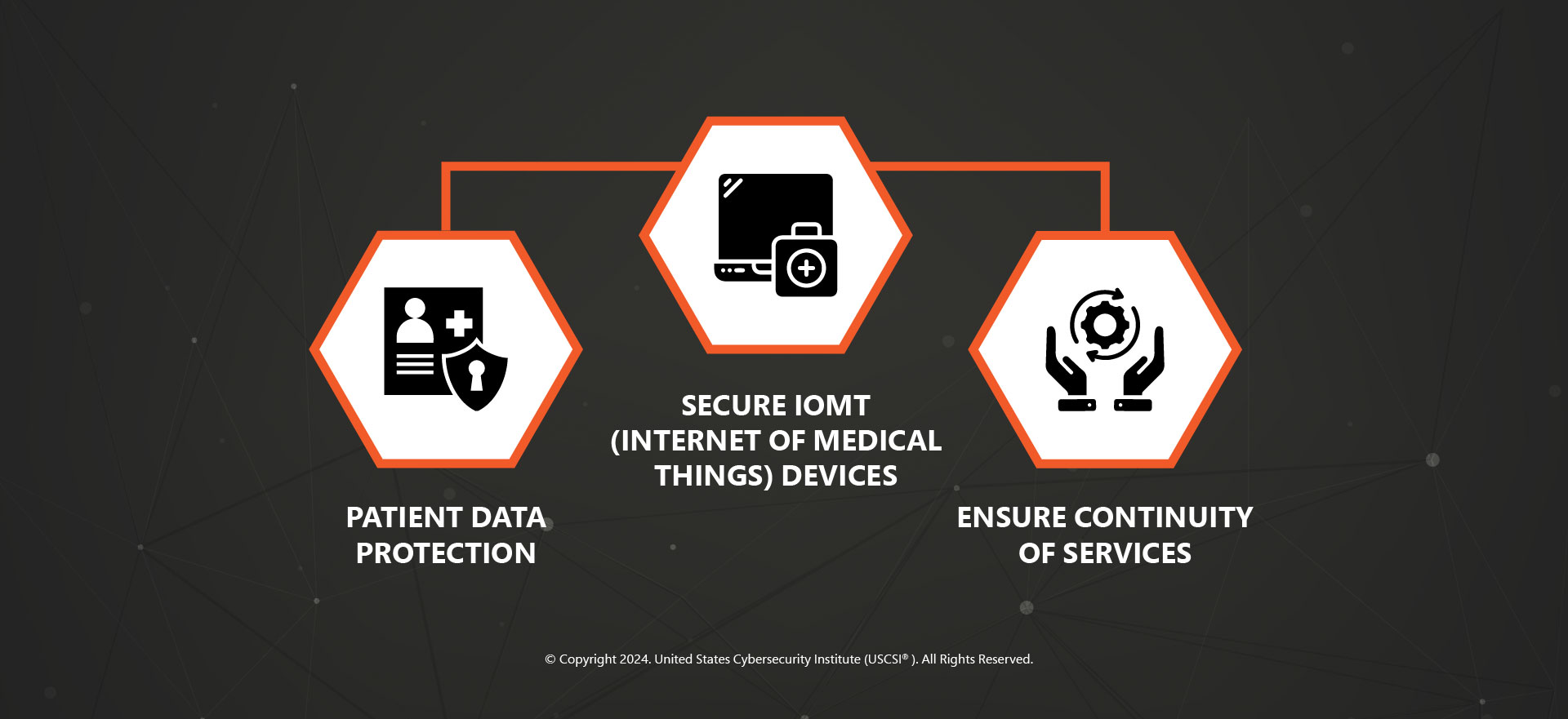
Top 4 Cybersecurity Regulations:
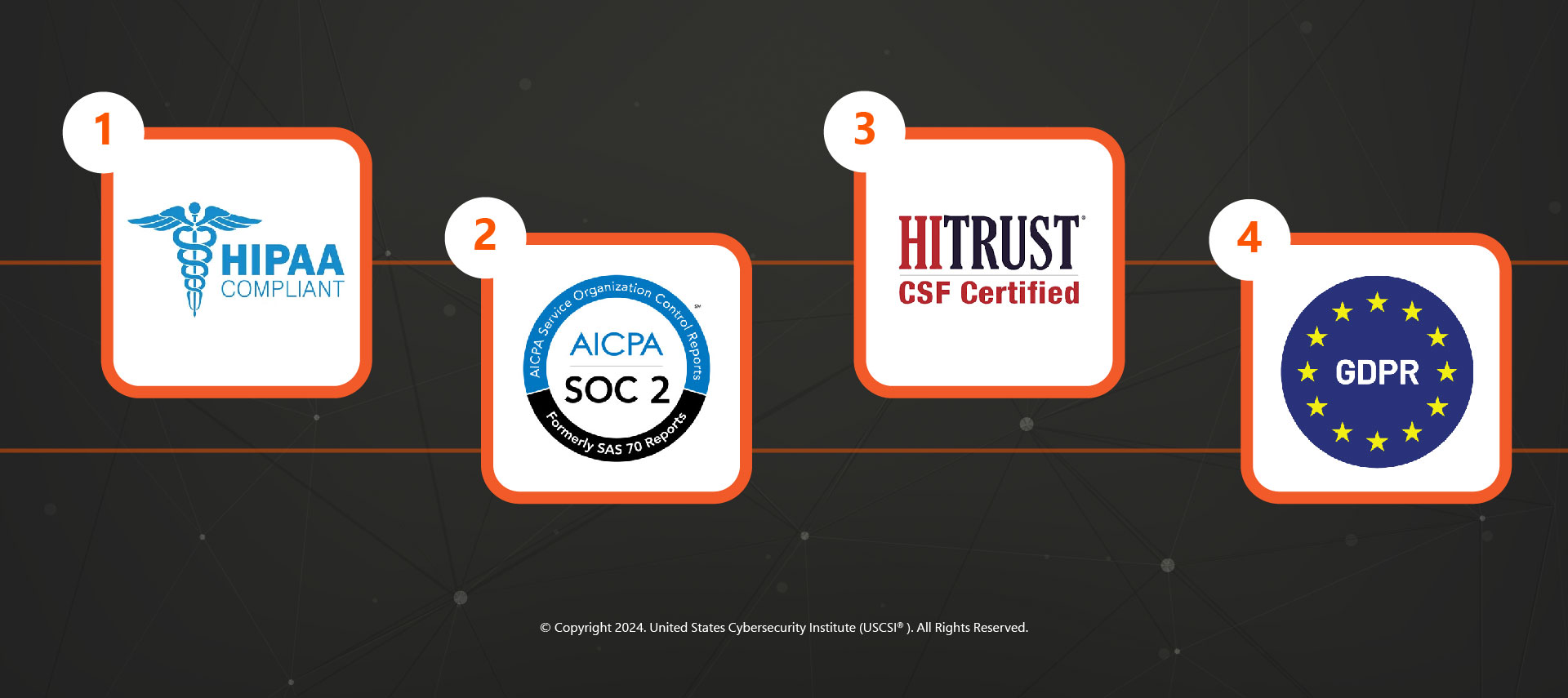
- HIPAA COMPLIANCE- The Health Insurance Portability and Accountability Act (HIPAA) is a priority cybersecurity framework that requires every healthcare organization to protect the privacy of the electronic health information of their patient base.
- AICPA SOC2- SOC2 Compliance is a report on controls at a service organization relevant to security, availability, processing integrity, confidentiality, or privacy; as per AICPA.
- HITRUST CSF CERTIFIED- Common Security Framework (CSF) is a certifiable framework for risk management and regulatory compliance that is agonistic to the healthcare industry.
- GDPR- General Data Protection Regulation (GDPR) outlines certain obligations that organizations must follow which limit how personal data can be utilized.
5 Benefits of Cybersecurity in Healthcare:
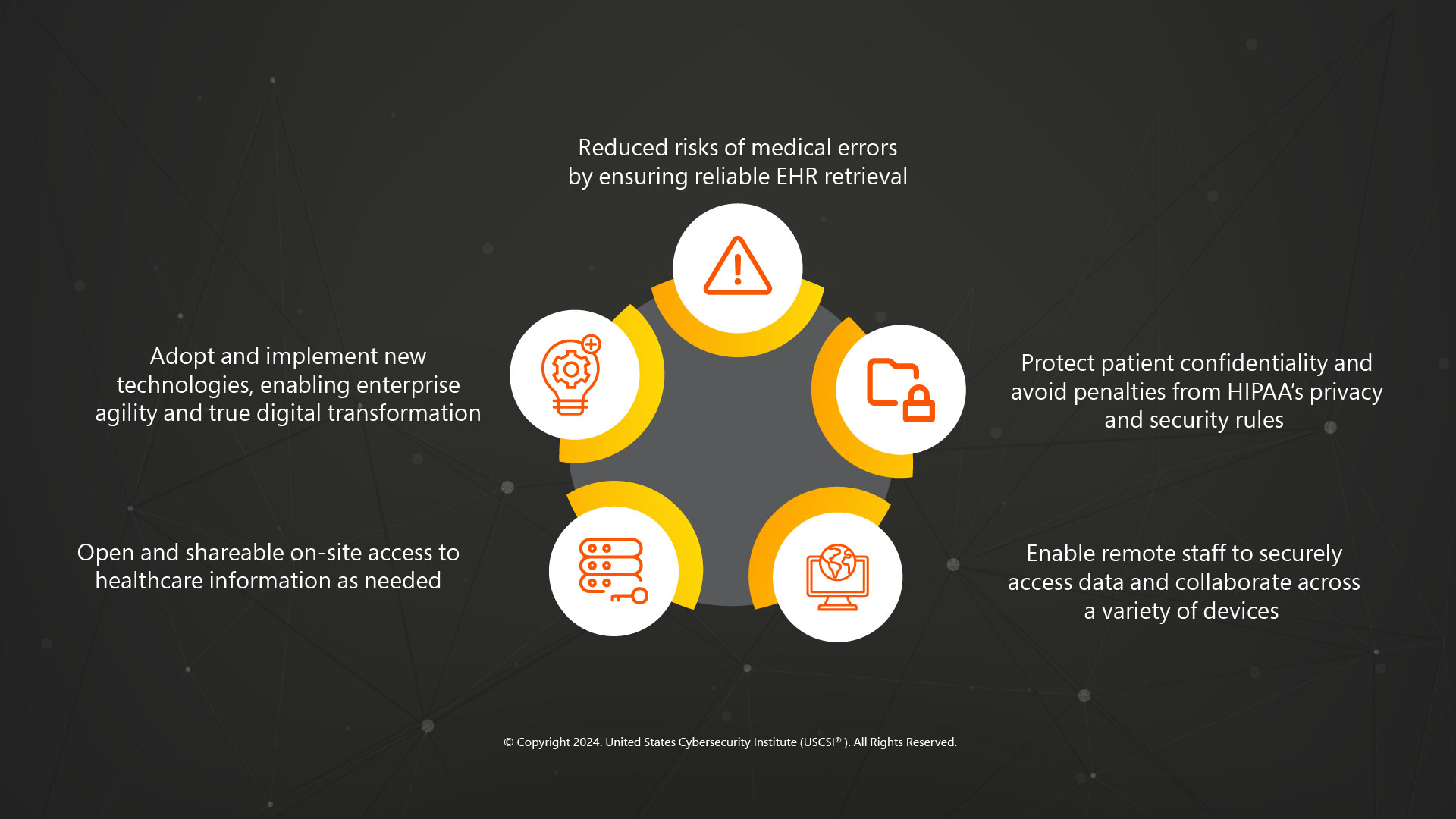
Top 6 Cybersecurity Challenges in Healthcare:
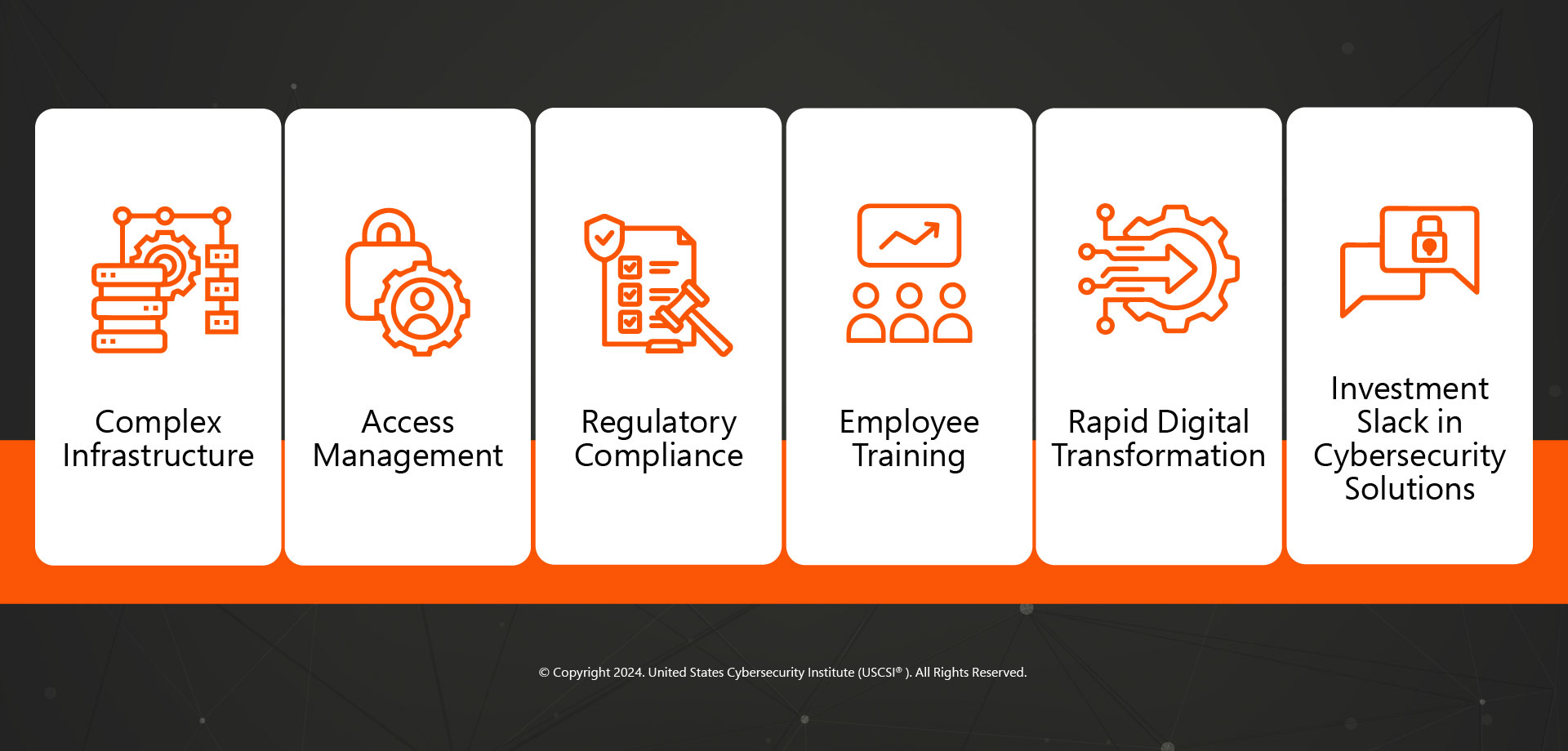
4 Best Practices for Strengthening Healthcare Cybersecurity:
- Increase visibility for enhanced monitoring of attack surface with instant cloud solutions
- Improved Third-party security that involves risk assessments, security ratings, and vendor testing
- Expand cybersecurity threat awareness
- Implement Multi-Factor Authentication as security controls
How are the leading cybersecurity companies helping protect the healthcare industry?
Addressing healthcare cybersecurity threats has been a tough nut to crack. But it is a novelty to witness global giants fighting it out with much finesse. CrowdStrike, Palo Alto Networks, GE Healthcare, CyberArk, Menlo Security, and many other prominent names have been deploying stringent strategies and cybersecurity norms to uphold the security of their critical information. This is the time to safeguard your networks against cyberattacks with the most nuanced cybersecurity talent. Make the move toward a better-secured cyberspace now!

